Description
Moisture Analyzers for Grains in Uganda: The Key to Optimal Grain Storage and Quality
In Uganda, grains such as maize, rice, beans, and wheat are staples of both local diets and agricultural exports. Properly managing the moisture content in these grains is critical to prevent spoilage, ensure quality, and increase shelf life. Moisture analyzers for grains are essential tools that allow farmers, processors, and exporters to measure moisture levels with high accuracy. At Eagle Weighing Systems, we offer a wide range of moisture analyzers specifically designed to help you manage grain quality and preserve your produce.
To explore our moisture analyzers and other related equipment, visit our official website or our moisture meter page.
Why Are Moisture Analyzers Essential for Grains?
Grains are highly susceptible to quality degradation when exposed to improper moisture levels. Moisture analyzers provide precise and reliable measurements that help you:
- Prevent Spoilage and Mold Growth
- Grains with excess moisture are more likely to spoil, develop mold, or attract pests. Accurate moisture measurement helps ensure grains are dried to optimal levels, reducing the risk of spoilage.
- Maximize Shelf Life
- Grains stored at proper moisture levels last longer, maintaining their freshness and nutritional value. A moisture analyzer helps you determine the best moisture content to extend storage periods.
- Ensure Export Quality
- International grain markets have strict moisture content standards. Using a moisture analyzer ensures your grains meet these requirements, reducing the likelihood of export rejections.
- Improve Milling and Processing Efficiency
- The moisture content of grains directly affects milling processes. Correct moisture levels ensure smooth processing and help maximize yield during milling.
- Optimize Drying Processes
- Moisture analyzers help determine when grains are dried sufficiently, saving energy costs and reducing the risk of over-drying or under-drying.
Key Features of Moisture Analyzers for Grains
When selecting a moisture analyzer for grains, consider these key features:
- High Accuracy
- Accuracy is essential when measuring moisture levels. Most moisture analyzers for grains provide readings with a precision of ±0.1% to ±0.5%. This ensures that the results are reliable and consistent.
- Fast Results
- Grain moisture analyzers are designed to provide quick results, allowing farmers and processors to make timely decisions regarding drying, storage, or milling.
- Ease of Use
- Moisture analyzers come with user-friendly interfaces, with digital displays and simple operation methods, making them accessible to both beginners and experienced professionals.
- Wide Moisture Range
- Some moisture analyzers can measure a wide range of moisture content, making them suitable for various types of grains such as maize, wheat, rice, and beans.
- Temperature Control
- Some models include integrated temperature control systems to ensure stable and consistent readings, even in fluctuating environmental conditions.
- Portability
- Moisture analyzers are often designed to be portable, making them suitable for field use. Farmers and traders can take measurements directly in the field without having to transport samples to a central location.
- Data Logging
- High-end models feature data logging capabilities, allowing you to store and analyze moisture readings over time. This is particularly useful for monitoring grain quality during storage.
Types of Moisture Analyzers for Grains Available in Uganda
At Eagle Weighing Systems, we offer a wide range of moisture analyzers designed specifically for grain processing and storage:
- Handheld Moisture Analyzers
- These are portable, easy-to-use devices perfect for small-scale farmers and traders. They provide quick moisture content readings, ideal for grain checks in the field or warehouse.
- Price Range: UGX 600,000 – UGX 1,500,000
- Laboratory-Grade Moisture Analyzers
- These analyzers are designed for more precise and detailed measurements, commonly used in laboratory settings or for large-scale grain processing operations.
- Price Range: UGX 1,500,000 – UGX 4,000,000
- Commercial-Grade Moisture Analyzers
- Ideal for medium to large-scale grain processors and exporters, these analyzers offer high accuracy and fast results, with additional features like data logging and temperature compensation.
- Price Range: UGX 4,000,000 – UGX 8,000,000
- Industrial-Grade Moisture Analyzers
- Designed for high-volume operations, these moisture analyzers can handle large quantities of grains, providing precise measurements quickly and efficiently. They are built for continuous use and high precision.
- Price Range: UGX 8,000,000 and above
Benefits of Using Moisture Analyzers for Grains
- Improve Grain Quality Control
- Accurate moisture measurements help maintain consistent grain quality, ensuring that grains meet both domestic and international standards for quality.
- Avoid Economic Losses
- Grains that are improperly stored or processed due to incorrect moisture content can lead to significant financial losses. Moisture analyzers help prevent such issues by ensuring that grains are handled at the right moisture levels.
- Optimize Storage Efficiency
- Storing grains with the correct moisture content reduces the risk of pests, mold, and other contaminants, ensuring a longer shelf life and less wastage.
- Increase Profit Margins
- By ensuring grains are dried to the ideal moisture content, you can achieve higher quality products that are more valuable in the marketplace, thus increasing profitability.
- Energy Savings
- Accurate moisture readings help determine the right drying times, saving energy and reducing costs by preventing over-drying.
How to Use a Moisture Analyzer for Grains
Using a moisture analyzer for grains is easy and efficient. Here’s a basic guide to get started:
- Prepare the Sample
- Take a representative sample of the grain you want to test. It’s essential to mix the sample to ensure an accurate reading.
- Set the Moisture Analyzer
- Set the analyzer to the specific grain type (such as maize, wheat, or rice). This ensures that the analyzer uses the correct calibration for that grain.
- Insert the Sample
- Place the grain sample into the moisture analyzer’s chamber. Follow the manufacturer’s guidelines for sample size and placement.
- Read the Results
- The moisture analyzer will provide a digital display of the moisture content as a percentage. For most grains, the optimal moisture content ranges from 12% to 14%.
- Interpret the Results
- Based on the results, you can determine if further drying is necessary or if the grain is ready for storage or sale.
Pricing and Availability in Uganda
At Eagle Weighing Systems, we offer moisture analyzers for grains at competitive prices to suit different needs:
- Entry-Level Handheld Models: UGX 600,000 – UGX 1,500,000
- Mid-Range Laboratory and Commercial Models: UGX 1,500,000 – UGX 4,000,000
- Professional and Industrial Models: UGX 4,000,000 – UGX 8,000,000
For more information on our moisture analyzers for grains, please visit our website or check out our moisture meter page.
Why Choose Eagle Weighing Systems for Your Moisture Analyzers for Grains?
- Quality and Reliability
- We are Uganda’s trusted supplier of high-quality moisture analyzers, offering products that meet international standards for accuracy and performance.
- Expert Advice
- Our knowledgeable team provides expert advice to help you select the right moisture analyzer for your grain type and processing needs.
- Comprehensive Services
- We offer calibration, training, and after-sales support to ensure your moisture analyzer continues to provide accurate readings throughout its lifespan.
- Affordable Pricing
- Our products are priced competitively, ensuring that you get high-quality equipment at an affordable rate.
- Wide Range of Products
- We provide a variety of moisture analyzers to suit all types of grain handling, from small-scale farmers to large commercial processors.
Frequently Asked Questions (FAQs)
1. Can I use the moisture analyzer for different types of grains?
Yes, many of our moisture analyzers are multi-grain models, allowing you to test various grains like maize, wheat, rice, and beans.
2. How often do I need to calibrate the moisture analyzer?
Calibration should be done at least once a year or whenever the results are inconsistent, to ensure the accuracy of the readings.
3. Do you offer delivery services for moisture analyzers?
Yes, we offer delivery services across Uganda to ensure your equipment reaches you safely and on time.
4. What is the ideal moisture content for grains?
The optimal moisture content for most grains is between 12% and 14%, although this can vary depending on the grain type.
Conclusion
Moisture analyzers for grains are invaluable tools that help ensure the quality, safety, and profitability of your grain products. Whether you’re a small-scale farmer, a processor, or an exporter, Eagle Weighing Systems offers a wide range of moisture analyzers to suit your needs.
For more information or to place an order, visit our website, explore our moisture meter page, or connect with us on Facebook


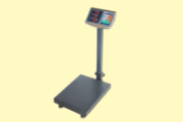

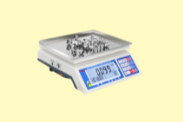
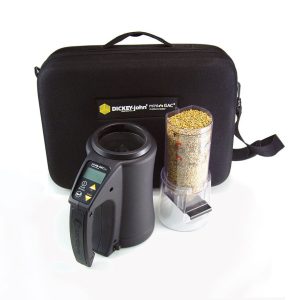
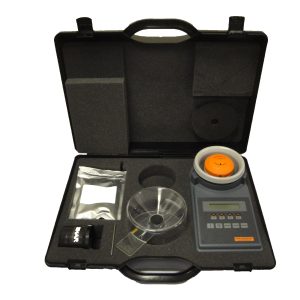
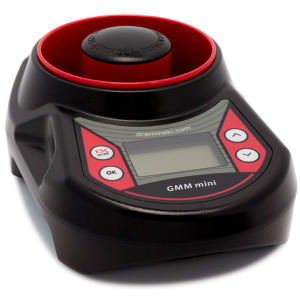
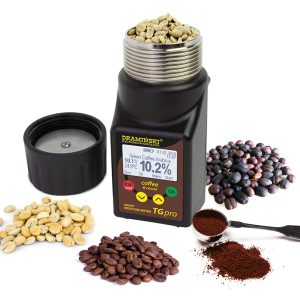
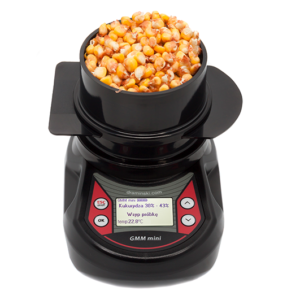



Sam Gombya –
I’ve used this service for year .They have always been honest friendly and affordable.
Kaguta Yusuf –
I would have no reservations about referring them to anyone.
Betrice Sam –
I know you will be happy with their work just as I am . So sure
Sendagire Fred –
Woo! We finally found a professional weighing scales supplier!
Mama Sasha –
We’ll be telling all our friends about You guys for sure
Martana Patricia –
I recommend them highly for their professionalism.
Sema Dickson –
They know the business and I think would make a good teacher for entry level workers just starting in this type of work.
Sempa Marvin –
I call upon you all to make your orders. Thank you Mr. Valerian Onyanga and you team
Herbert S –
All the more reason to have somebody you trust do the work and not take advantage of a situation where you can’t do it yourself and must have pros do the work.
Gita Seeds –
We purchased moisture meters from Eagle Weighing Scales for testing our seeds.